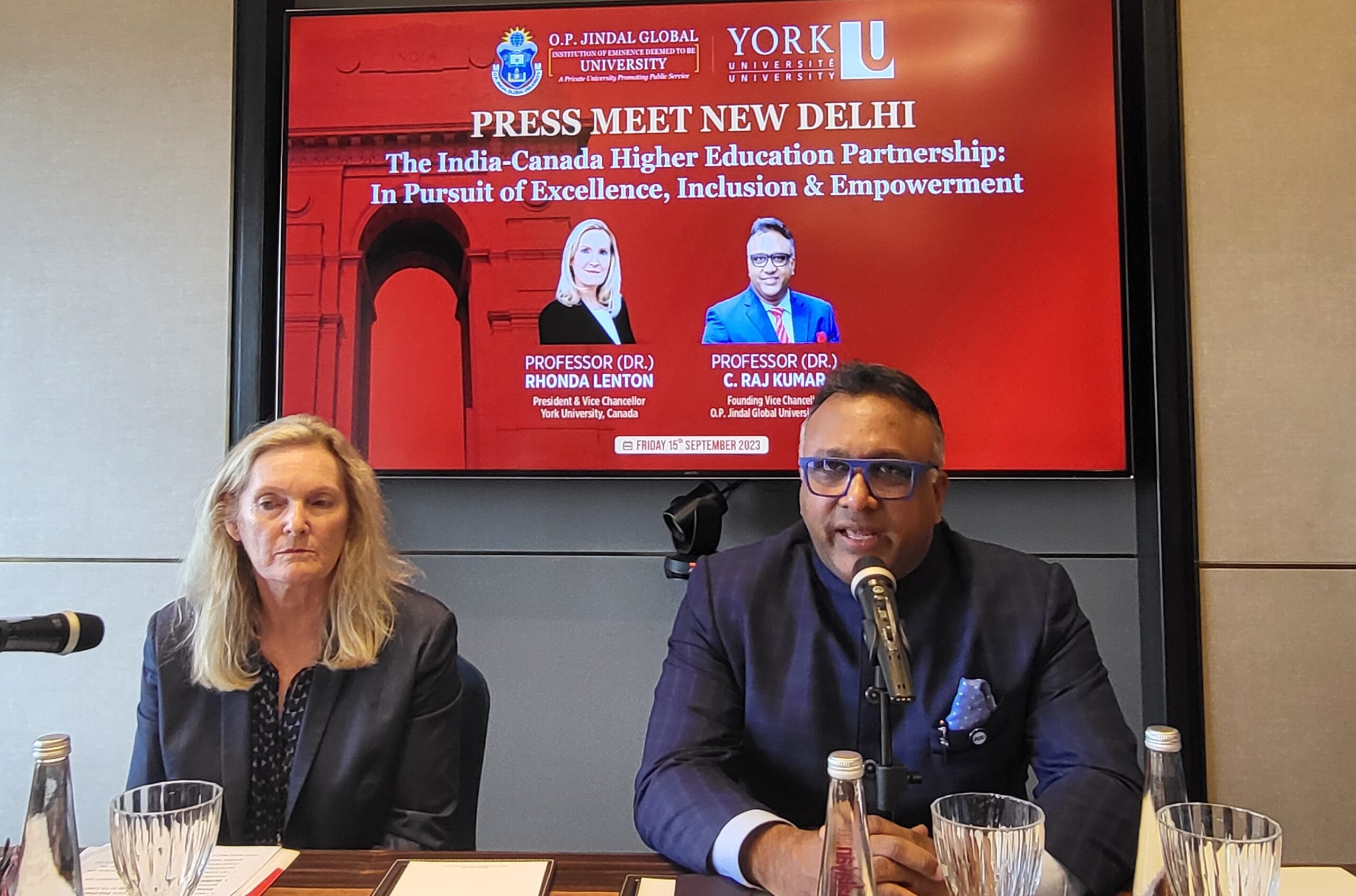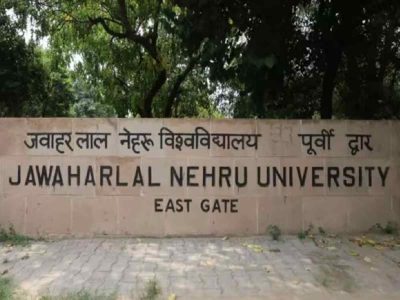OP Jindal Global University (JGU) in Sonipat has signed a Memorandum of Understanding (MoU) with Canada’s York University to promote student mobility and academic collaboration. This partnership aims to facilitate global engagement to address complex challenges in a post-pandemic world.
While addressing the press conference, Professor Rhonda L. Lenton, President and Vice-Chancellor of York University, highlighted the need for higher education institutions to address global inequalities and stated, “As the world recovers from a global pandemic, progressive universities like York University and JGU have an opportunity to play a greater role in facilitating global engagement to address incredibly complex challenges.”
She pointed out that despite technological progress, many people worldwide still lack access to quality education, healthcare, sustainable food options, or clean drinking water. “Higher education institutions have an opportunity to serve as catalysts for positive change by addressing deeply rooted systemic inequalities,” she said.
“Both the universities are planning to roll out many programmes, including student exchange programmes, dual degree programmes, and other collaborative research and faculty engagement programs,” she added. “York University is known for having a significant number of international students, including 2000 Indian students.”
Lenton emphasised the natural partnership between India and Canada in the current global context, leveraging their strengths for a more sustainable, equitable, and prosperous future.
She also highlighted York University’s commitment to investing in initiatives that strengthen ties with India, including student and researcher opportunities.
Regarding the changing nature of work and international understanding, Lenton mentioned, “The nature of work, including automation and AI, is changing rapidly, and the World Bank of Canada has said that 50 percent of the jobs we see today will either be gone or fundamentally changed in the next 10 years. So, collaboration and partnership could be hugely beneficial.”
She stressed the importance of international experience for students, saying, “Our employers tell us that one of the key characteristics they look for in talent is those who have international understanding. So we want our domestic students from Canada to go abroad and if they can’t afford to go abroad, to have international experience otherwise like online globally network learning courses. There is a huge opportunity here for us to collaborate and to meet our respective needs and to learn from one another.”
Additionally, Lenton mentioned the potential for collaboration in supporting young entrepreneurs and entrepreneurship programmes.
Professor C Raj Kumar, Founding Vice Chancellor, OP Jindal Global University, expressed desire to creating a global learning experience and forging strong partnerships.
He highlighted the importance of collaboration with York University for student and faculty exchanges, dual degree programmes, and collaborative research projects.
Professor Kumar said the potential for growth and development in India’s young population, stressing the role of education in unlocking opportunities for both countries.
“This year, JGU has announced the award of more than 2,000 scholarships to deserving students for the forthcoming academic year 2024-25,” he said, adding that “This transformative initiative is geared towards providing outstanding young talent with equal opportunities to access high-quality education. The decision to award more than 2,000 scholarships for the incoming batch of 2024-25 is to commemorate the 15th anniversary of JGU. This will empower more than 60% of the new students.”
In conclusion, Professor C Raj Kumar emphasised the demographic advantage of India’s youthful population and the need to increase the gross enrollment ratio in India, highlighting the potential for advancing research and institution building capacity within Canada through investments in Indian higher education.





